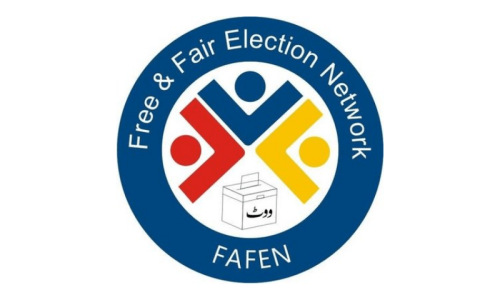LAHORE, Aug 19: As the wheat release season draws nearer, the federal and provincial governments are at a variance about the official release price, with Punjab trying to keep it as low as possible and the federation, more worried about smuggling, insisting on a higher price for narrowing the gap between the domestic and Afghanistan’s price.
According to sources in the Ministry of Food, Agriculture and Livestock, the federal government wants to fix the price around Rs750 per 40kg, whereas the Punjab government is insisting on a price between Rs675 and Rs700.
Sources told Dawn that both the province and the federation had different priorities as far as the price mechanism was concerned. The Punjab government that had recently launched the Food Stamp Scheme wanted to keep the price low and “gain political and social mileage out of it”.
The federal government, on the other hand, was more concerned about the flour smuggling to Afghanistan and consequent supply pressure in two of its federating units – NWFP and Balochistan, they said. With the world prices hovering around $385 per ton (around Rs1,200 per 40kg in Pakistani rupees), they said, the federal government wanted to bring domestic price as close to Afghanistan’s as possible to discourage smuggling.
There is a difference of around Rs500 per 40kg between the domestic and world prices and the federation, according to the sources, wanted to narrow it down but Punjab was not ready to give in to the (federal) pressure and wanted to maintain domestic advantage for its people.
Since the Punjab borders were not as porous as those of the NWFP and Balochistan, they said, it wanted to keep the price low because it could effectively monitor any cross-border movement. The federal government, however, could neither favour Punjab’s monitoring its borders nor could it afford the price pressure in other two provinces, where prices have gone up to Rs1,400 per 40kg flour.
The Punjab flour policy was also creating pressure on the federation, they said, and added: “The Punjab government is currently using high-end NWFP market to keep the price down within its own borders. It is issuing permits to millers to sell flour to NWFP buyers around Rs500 per 20kg and forcing them to keep the price at Rs365 within Punjab.
“It might have its own logic behind the policy, but it is not defendable in the federal context. The federal government now wants to keep a unified price in all the four provinces with new release price. Punjab has its own priorities and both governments now need to strike a balance between their priorities.”
Since the federal government had to pay the differential between the import and release price, that is, around Rs500 per 40kg, it wanted to play a decisive role in price determination.
And as the Punjab administration was committed to releasing wheat from Aug 26, the issue should be settled in the next few days, said the sources. The province would also be receiving 800,000 ton imported wheat which would be crucial to keep its own market stable and it would be vulnerable to the federal pressure, they said, hoping that the price would fall somewhere between both these digits.











































Dear visitor, the comments section is undergoing an overhaul and will return soon.